Fabien Bouglé is an energy policy expert. His warnings have, among other things, contributed to the French government putting an end to the purchase of electricity from offshore wind turbines at exorbitant prices. He is the author of Nucléaire les vérités cachées (2021) and Eoliennes la face noire de la transition écologique (2019).
Patrick Edery: What is most striking in your speeches and writings is the considerable efforts Germany is making to put pressure, directly and indirectly, on the French government to destroy France's last competitive advantage, its nuclear industry. Why?
Fabien Bouglé: It is very difficult to describe in a few lines what made several chapters in my book Nuclear the Hidden Truths. We are in fact in a head-on opposition between two models: the German "Energiewende" initiated and promoted by Gerhard Schröder, which involved a mix of wind and solar energy coupled with gas-fired power stations (coming from Russia via Nord Stream 1 and 2), and the French mix of nuclear, renewable and hydraulic energy. In terms of climate, the Energiewende is a resounding failure, with Germany being the worst performer in the European Union, emitting 8 times more greenhouse gases than France. In recent years, the Federal Court of Finance has had an opportunity to warn of the risks of power cuts and an explosion of the German electricity bill: in vain. Moreover, Germany has created a vast industrial sector based on this model: wind turbines represent 200,000 jobs. France, with its nuclear power plants, produces 70% of its electricity, and its industry represents 400,000 direct, indirect and induced jobs. As all the nuclear power plants have been amortised for at least 20 years, they provide France with cheap, reliable and competitive electricity. This is of great importance for its competitiveness and growth.
Germany has never accepted French nuclear power. This goes back to the agitations and demonstrations against the Superphénix fast-breeder reactor that ate nuclear waste while producing electricity. At that time, there were many Germans in the demonstrations at Creys Malville. For many reasons, Germany has a very negative view of the French nuclear power: it allows France to have affordable electricity, ensures its energy independence, reduces its dependence on fossil fuels, ensures the decarbonisation of the country’s electricity mix, and allows it to have nuclear weapons. In this sense, nuclear power places France among the leading countries in Europe. Thanks to nuclear power, France is consolidating its place among the great nations that sit on the UN Security Council. And, as a country defeated in the Second World War, Germany does not support France's geopolitical advantage due to its nuclear power, and so our neighbour and European "partner" is playing with fire by seriously calling into question the Euratom Treaty; the founding treaty of the European Union signed on 27 March 1957 - the same day as the Treaty of Rome. That treaty defines the conditions for the development of the European Community based on the nuclear industry. By waging a war against nuclear power, Germany is creating a systemic shock wave that calls into question one of the foundations of the EU, which is very dangerous for peace in Europe.
Could you please give our readers an overview of Germany's actions?
The war against French nuclear power is being waged on three levels: At the European level, Germany has literally infiltrated the energy-related institutions. The departure of Great Britain has in a way facilitated the task of Germany, which has opportunely taken over all the decision-making machinery for this issue. A report by the French Ecole de Guerre Economique entitled: "J'attaque! How Germany is trying to weaken France durably on the issue of energy" explains perfectly well how the anti-nuclear country has proceeded with economic infiltration operations coupled with the installation in Brussels of numerous wind energy lobbies such as Agora-Energiewende.
On the French soil, Germany has set up an office within the Ministry of Ecology to promote the German Energiewende model, called OFATE. This organisation, which is governed by German law, has its headquarters in Berlin at the Federal Ministry of the Economy and Climate, but its offices are located in France at the DGEC, the department of the Ministry of Ecology responsible for France's energy policy (Office MTE DGEC 26S29). More clearly: the German wind power lobby, which includes Greenpeace, is installed at the heart of French energy power.
And finally, there are the so-called environmentalist organisations linked to Germany that act more like economic mercenaries aiming to destroy the image of nuclear power. This is the case of Greenpeace, described by Thibault Kerlirzin in his book on the organisation as a "green mercenary", not hesitating to carry out illegal intrusions into our nuclear power plants or even worse, to launch a drone against a nuclear reactor. This organisation, which has partnerships with wind turbine manufacturers, combines its actions with legal operations of economic warfare in Brussels. These operations are aimed at disqualifying nuclear power in the eyes of the public. WWF is also not only concerned with pandas, but is also leading a real offensive, the objective of which is the dismantling of EDF in order to weaken the French nuclear industry. This is a far cry from the protection of endangered species. All these agencies have very close links with their German headquarters. And all these actors are clearly mentioned on pages 77 and 79 of a brochure published by the German Foreign Ministry entitled "Who's who in the German Energiewende?
Until recently, in France, all the leaders of the governing parties, senior civil servants and mainstream journalists presented Germany as a benevolent power and an example to be followed. None of them questioned the dogma of the 'Franco-German couple'. And all of a sudden, you appear like a dog in a bowling alley, you are invited to several mainstream media and are listened to in "high places" to denounce the energy war that Germany is waging. What has happened?
My book “Nucléaire - les vérités caches” came out in October 2021, just before the presidential about-face that envisaged financing small modular reactors. In it, I exposed the energy war with Germany and explained in a documented and sourced way how we were heading for the wall with the policy pursued until then. That book, which has since been sold in 10,000 copies, has been distributed to all French parliamentarians. All the information mentioned is factual and implacable. In chapter 7, entitled "Decrease in nuclear power: increase in bills and cuts", I explained that we were heading for large-scale power cuts and an explosion in electricity bills. The facts proved me right. I didn't think my predictions would come true so quickly, but the gas crisis coupled with the war in Ukraine has accelerated the phenomenon. The decrease in the availability of our nuclear power plants, linked to a precautionary principle taken to the extreme because of this anti-nuclear propaganda, has accelerated the forecasted decrease in nuclear power, and therefore the risk of blackouts and higher bills.
None of the information in my book has been disputed by anyone and I hope that I have helped to raise awareness of this extremely serious issue. I think the journalists are aware that the situation is serious and I thank them very much for letting me express myself on that subject of the utmost importance and even vital for our country and peace in Europe.
What do you think of the parliamentary commission of enquiry "aimed at establishing the reasons for France's loss of sovereignty and energy independence"?
All the members of this commission of enquiry received my two books and I am delighted that the hearings have brought to light the political sabotage of French nuclear power. The fact remains that no real work on analysing the situation has been done: no serious hearings of the anti-nuclear organisations, no in-depth analysis of the role of Germany, no in-depth analysis when the main people responsible for the French energy crisis, François Brottes and Xavier Piechaczyk, were interrogated. During his hearing, the former Chairman of EDF, Henri Proglio, explained that Germany wanted to destroy EDF, leaving the rapporteur and the committee chairman speechless. That crucial information did not elicit any reaction or interest. In a televised confrontation that I had on CNEWS with the rapporteur of the commission of enquiry, the deputy Antoine Armand considered that implicating Germany in this affair was conspiratorial.
This is very worrying when we know the considerable arm wrestling that is currently going on between France and Germany on the subject of nuclear power. Recently, the newspaper Le Monde ran an article entitled "A Bruxelles, la guerre du nucléaire entre l'Allemagne et la France fait rage". I fear that the rapporteur of the committee of enquiry has largely discredited himself in terms of his lucidity in really understanding what is happening on the subject of energy. Having listened carefully to the various hearings, I fear that the commission has missed the point and has only dealt with the first level of the affair. The key people have been left out, though they could have disclosed very important things It is a pity that they have not been interrogated. Although the commission had the merit of bringing to light things that were already known, it has missed the real subject: the energy war with Germany.
Do you think that this time Paris has really understood and will defend its nuclear industry and not let itself be led by the nose by Berlin once again? Especially, knowing that the anti-nuclear lobbies are very present in the administrations and the public media?
I think so. The French deep state seems to have realised that France and Europe are in great danger if nuclear discrimination persists in the European bodies. This is reflected in the strong and determined voluntarism of our governments on the subject of nuclear power. I believe that this energy disruption is now definitive and that we are going to enter a period of great development of nuclear power in France and in Europe. France was somewhat the spoiled child of Europe for its electricity and did not realise how lucky it was with its nuclear heritage. The risk of power cuts this winter was a real shock and accelerated the realisation that nuclear power was an extraordinary asset not only for France, but also for Europe. In this sense, I believe in European solidarity based on the development of nuclear power. The current tug of war with Germany shows the solidity of France's position on that subject, and I am delighted that our governments are determined in this regard. There is still a lot of work to be done to make sure that our institutions are not infiltrated by anti-nuclear forces, and here we can see that the latest appointments are moving in the right direction.
Where are we at the European level? It seems that France and Poland have forged an alliance on nuclear power with some other Central European countries?
Yes, France, together with other European countries including Poland, has set up an alliance that I will call the "Euratom Alliance". Basically, this coalition of countries aims to revive the letter and spirit of the founding fathers of the European Union, based on the nuclear industry of the Euratom Treaty. Nuclear power is an opportunity for Poland, whose electricity mix is heavily based on coal, and a few wind turbines will not change this. Only the development of nuclear power will enable Europe to respond to the concern for decarbonisation of electricity, while at the same time establishing the energy sovereignty it so badly needs. I am very optimistic and am convinced that peace and stability in Europe can only be achieved through strong development of this industry, which guarantees economic growth and jobs that cannot be relocated. This is why France, Poland and all other countries must persevere in this direction.



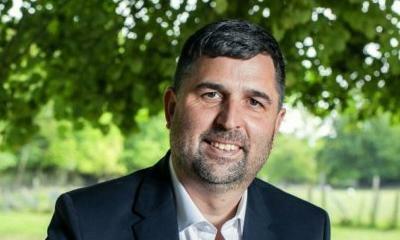

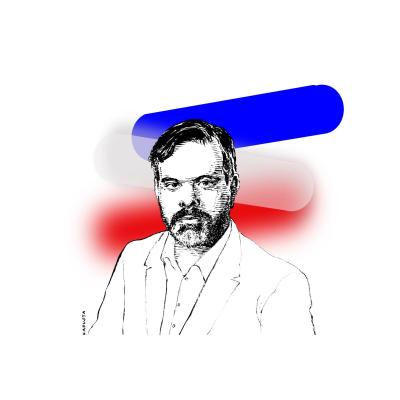
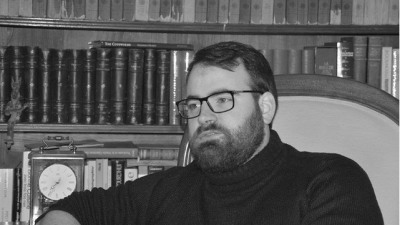

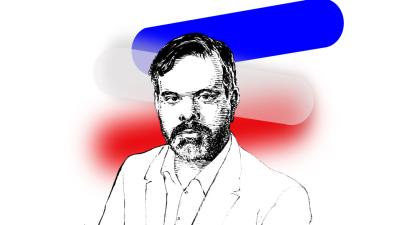

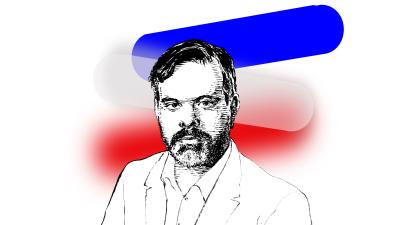

Comments (0)